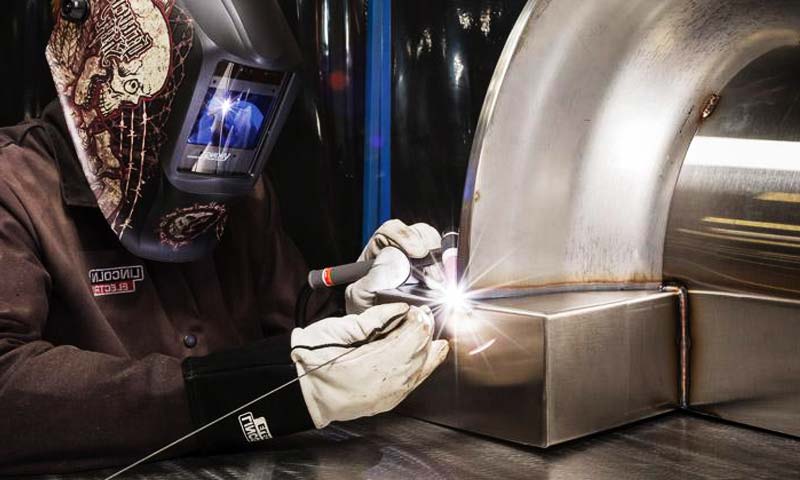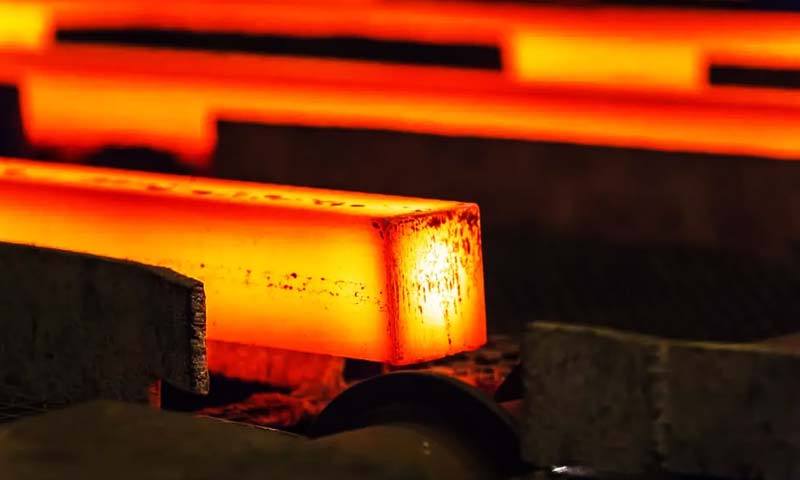1. Zavedení
Among the most widely used alloys are 5052 vs. 6061 Hliníkové slitiny, each serving distinct needs in various industries.
While both share aluminum’s lightweight and corrosion-resistant nature, their chemistries and processing methods yield markedly different mechanical properties and fabrication behaviors.
V tomto článku, porovnáme 5052 a 6061 aluminum alloys from multiple perspectives—metallurgical, mechanický, tepelný, koroze, výroba, náklady, and application use cases.
Understanding the advantages, omezení, and ideal application scenarios of each alloy enables informed material selection for projects in marine, automobilový průmysl, kosmonautika, elektronika, a další průmyslová odvětví.
2. Chemie slitin & Metalurgický základ
5052 (UNS A95052) a 6061 (US A96061) are both wrought Hliníkové slitiny, but they belong to different series and are engineered for distinct performance characteristics.
Understanding their Chemické složení provides insight into their mechanical properties, odolnost proti korozi, a formovatelnost.
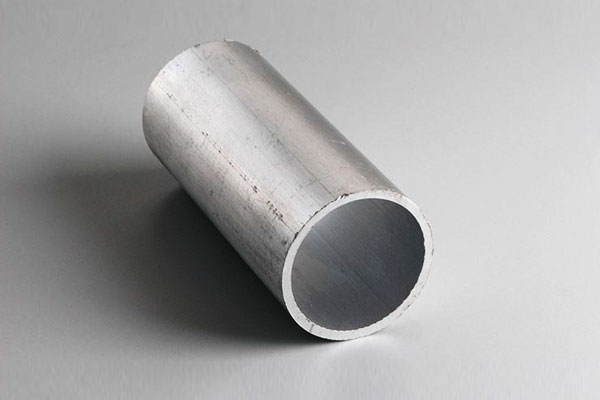
Tabulka: Chemical Composition and Role of Alloying Elements
| Živel | 5052 (% po váze) | 6061 (% po váze) | Role & Metallurgical Significance |
|---|---|---|---|
| Hliník (Al) | Váhy | Váhy | Primary metal; provides light weight and corrosion resistance. |
| Hořčík (Mg) | 2.2 - 2.8% | 0.8 - 1.2% | Increases strength via solid solution hardening; zvyšuje odolnost proti korozi. |
| Křemík (A) | ≤ 0.25% | 0.4 - 0.8% | V 6061, combines with Mg to form Mg₂Si, enabling precipitation hardening. Zlepšuje sezorita. |
| Chromium (Cr) | 0.15 - 0.35% | 0.04 - 0.35% | Improves corrosion resistance and controls grain structure during processing. |
Měď (Cu) |
≤ 0.1% | 0.15 - 0.40% | Significantly improves strength and machinability, but decreases corrosion resistance. |
| Železo (Fe) | ≤ 0.4% | ≤ 0.7% | Present as an impurity; high levels can reduce ductility and corrosion resistance. |
| Mangan (Mn) | ≤ 0.1% | ≤ 0.15% | Enhances strength and wear resistance; helps refine grain structure. |
| Zinek (Zn) | ≤ 0.1% | ≤ 0.25% | Typically a minor impurity; excessive Zn can reduce corrosion resistance. |
| Titan (Z) | - | ≤ 0.15% | Refines grain structure during solidification; improves toughness and strength. |
Key Metallurgical Differences:
- 5052 Hliník (from the 5xxx series) je neheat-léčba and relies primarily on magnesium for solid-solution strengthening.
It offers excellent corrosion resistance, zejména v mořském prostředí, due to its high Mg content and absence of copper. - 6061 Hliník (from the 6xxx series) je tepelně léčené, utilizing a combination of magnesium and silicon to form Mg₂Si precipitates,
which significantly improve strength after aging treatments (NAPŘ., T6 temperamentní).
Však, it contains more copper than 5052, which can slightly compromise its corrosion resistance.
3. Mechanické vlastnosti 5052 vs. 6061 Hliníkové slitiny
Choosing the right alloy depends heavily on mechanical performance, especially when strength, tažnost, and fatigue resistance are critical.
Below is a side-by-side comparison of 5052-H32 and 6061-T6:
Tabulka porovnání mechanických vlastností
| Vlastnictví | 5052-H32 | 6061-T6 | Poznámky |
|---|---|---|---|
| Pevnost v tahu (MPA) | 210 - 260 | 290 - 340 | 6061-T6 offers higher overall strength. |
| Výnosová síla (MPA) | 130 - 195 | 240 - 280 | Better load-bearing capacity in 6061. |
| Prodloužení při přestávce (%) | 12 - 20 | 8 - 10 | 5052 is more formable and ductile. |
| Tvrdost Brinell (HB) | ~ 60 | ~ 95 | 6061 is significantly harder. |
| Modul elasticity (GPA) | ~ 70 | ~69 | Very similar stiffness. |
| Únava (MPA) | ~117 | ~ 96 | 5052 performs better under cyclic loading. |
| Střihová síla (MPA) | ~138 | ~207 | 6061 has greater shear capacity. |
Klíčové poznatky:
- 5052 nabídky excellent ductility and fatigue resistance, making it ideal for applications involving ohýbání, formování, nebo vibrace, such as fuel tanks and marine structures.
- 6061, zvláště v T6 temperamentní, poskytuje higher strength and hardness,
making it better suited for Strukturální aplikace where load-bearing and machinability are priorities, such as aerospace frames or automotive components.
4. Fyzikální & Tepelné vlastnosti 5052 vs. 6061 Hliníkové slitiny
Beyond mechanical performance, aluminum alloys must be evaluated for how they respond to temperature, electrical load, a tepelné cyklování, zvláště v leteckém prostoru, elektronika, and transportation sectors.

Fyzikální & Thermal Properties Comparison
| Vlastnictví | 5052 Hliník | 6061 Hliník | Poznámky |
|---|---|---|---|
| Bod tání (° C.) | 605 - 650 | 582 - 652 | Slightly higher melting point in 5052. |
| Tepelná vodivost (W/m · k) | ~138 | ~167 | 6061 conducts heat more efficiently. |
| Elektrická vodivost (% IAC) | ~ 35 | ~43 | 6061 offers better electrical conductivity. |
| Koeficient tepelné roztažnosti (µm/m · k) | 24.9 | 23.6 | 5052 expands slightly more under heat. |
| Tepelná stabilita | Mírný | Vysoký | 6061 retains strength better at elevated temps. |
5. Odolnost proti korozi & Povrchové chování
Obecná odolnost proti korozi
- 5052 is often considered one of the most corrosion-resistant aluminum alloys in marine and industrial environments due to its high Mg content and Cr additions.
It withstands seawater, solný sprej, and many chemical exposures with minimal attack. - 6061 has good general corrosion resistance but is inferior to 5052 in chloride-rich or highly acidic/basic conditions.
Anodizing improves 6061’s durability, but in raw form, 6061 is more prone to pitting in salt spray tests.
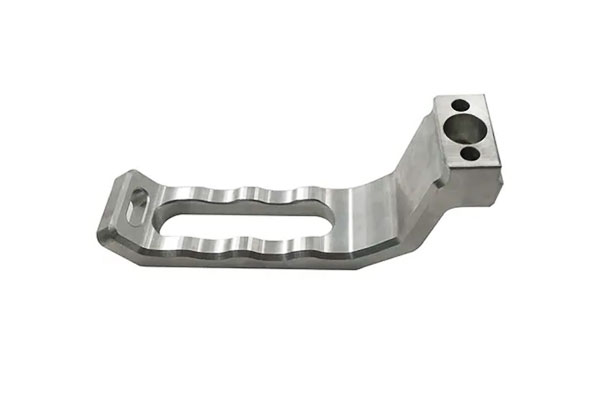
Pitting & Koroze štěrbiny
- 5052-H32 shows minimal pitting in 5 % NaCl salt-spray tests beyond 500 hodin if surfaces are properly finished.
The stable passive film (Al₂o₃ + Mg-rich oxides) repels chloride ions effectively. - 6061-T6 begins showing small pits under similar conditions after ≈ 200 hours unless a hard-coat anodize or conversion coating is applied.
Crevice corrosion can initiate under tight joints or gasketed areas.
Praskání napětí (SCC)
- 5052 has virtually no SCC susceptibility even under sustained tensile loads in a chloride environment.
- 6061-T6 is moderately susceptible to SCC if subjected to tensile stresses above 75 % of yield in chloride media.
Přeceňování do T4 nebo T5 temper reduces SCC risk but also lowers peak strength.
Surface Treatment Recommendations
| Slitina | Recommended Finishes | Corrosion Benefits |
|---|---|---|
| 5052 | Anodize (Typ II), Powder Coat, PVDF, Chromate Conversion | Seal porosity and increase chloride resistance |
| 6061 | Hard Anodize (Typ III), Chromate Conversion, e-Coat, Malovat | Dramatically improves pitting resistance and longevity |
6. Svařovatelnost & Výroba 5052 vs. 6061 Hliník
Welding Characteristics
- 5052 svary exceptionally well with all common fusion methods (GMAW/MIG, Gtaw / otočení).
It exhibits minimal hot-cracking, a 5183 nebo 5654 filler rods yield weld metal retaining ≈ 90 % of base-metal strength. - 6061 can be welded by GMAW/TIG as well, ale heat-affected zones (HAZ) in T6 will soften to ≈ 50 % of base strength (≈ 145 Výnos MPA).
Obnovit sílu, A T4 → T6 re-aging cycle is often required: weld in T4, then solution treat and artificially age.
Common fillers are 4043 (Al-Si) for crack resistance or 5356 (Al-MG) for higher weld strength; each affects HAZ differently.
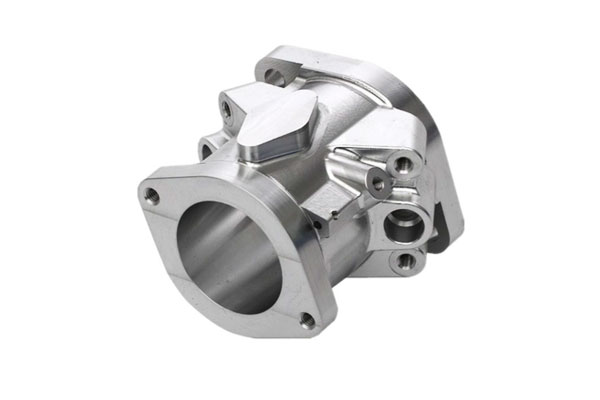
Machinability
- 5052 has a machinability rating of approximately 40 % (relative to the 2011 aluminum baseline).
It machines with moderate speeds (150–200 m/i) using carbide tooling.
The higher Mg content contributes to slight work hardening during cutting; feed rates should be conservative to avoid built-up edge.
Surface finishes of RA 1,6-3,2 µm are achievable in 2–4 mm depth-of-cut operations. - 6061 skóre 60–70 % Machinability. It accepts higher cutting speeds (200–300 m/i) and maintains excellent surface finish (RA 0,8-1,6 µm).
Carbide tools with positive rake angles and flood coolant maximize tool life. Swarf tends to break into small chips, facilitating safe evacuation.
Formování & Ohýbání
| Slitina & Zmírnit | Minimum Bend Radius | Poznámky |
|---|---|---|
| 5052-H32 | 1 × tloušťka | Vysoce formovatelné; spring back moderate; ideal for deep draw and roll forming |
| 6061-T6 | 3–4 × thickness | Omezená formovatelnost; cracks if bent too sharply; requires annealing (T4) for tight bends |
| 6061-T4/T651 | 1.5 × tloušťka | Improved formability but must be re-aged to T6 for strength restoration |
- 5052-H32 can be bent to a radius as small as 1× its thickness without cracking, making it ideal for complex stamped or drawn parts (NAPŘ., palivové nádrže, marine panels).
- 6061-T6 is more prone to cracking under tight bend radii; typical safe bend radius is 3–4× tloušťka.
To achieve tighter radii, parts are formed in T4 a pak T6-reaged post fabrication.
7. Tepelné zpracování & Hardening of 5052 vs. 6061 Hliník

5052 Hliník (Non-Heat-Treatable)
- Strengthening Mechanism:
-
- Relies entirely on Kalení práce (strain-hardening) a pevné řešení of Mg.
- Max attainable UTS is ~ 241 MPa in H34, after extensive cold working.
- Tempering Options:
-
- H32: Work-hardened to approx. 228 MPA UTS.
- H34: Further cold work yields ~ 241 MPa UTS but reduces ductility to ~ 5 %.
- Tepelné zpracování:
-
- Žíhání (Ó temperament) at 300–400 °C softens the material (Ra ~ 105 MPA) to restore formability.
- No precipitation hardening possible; any heat treatment beyond anneal only reduces strength.
6061 Hliník (Tepelně léčené)
- T4 (Roztok tepelně ošetřeno + Naturally Aged):
-
- Proces: Řešení při ~ 530 °C for 1–2 h, quench in water, then age at room temperature (~7 days).
- Vlastnosti: Uts ~ 240 MPA, yield ~ 145 MPA, prodloužení ~ 18 - 22 %.
- Použití: Ideal for complex bending before final aging.
- T6 (Roztok tepelně ošetřeno + Artificially Aged):
-
- Proces: Řešení při ~ 530 °C for 1–2 h, uhasit, then artificially age at 160 °C for 6–8 h.
- Vlastnosti: Uts ~ 310 MPA, yield ~ 275 MPA, prodloužení ~ 12 - 17 %.
- Použití: Standard for maximum strength requirements in structural components.
- T6511 (T6 with Stress Relief):
-
- Proces: After T6, a low-temperature stress relief (120 ° C pro 2 h) reduces warping during subsequent machining.
- Vlastnosti: Essentially identical to T6 but with minimal residual stress.
8. Náklady, Dostupnost & Dodavatelský řetězec
Raw Material Pricing
- 5052 typically commands a 5 - 10 % pojistné over generic 6xxx alloys due to higher Mg content and specialized rolling processes.
As of early 2025, 5052 sheet is priced around $3.50–$4.00/kg, depending on thickness and temper. - 6061 is one of the most widely stocked alloys; its raw material cost hovers around $3.00–$3.50/kg for sheet and plate.
Extrusions may carry a slight surcharge but remain abundant and competitively priced.
Formuláře akcií & Dodací lhůty
| Form Factor | 5052 Dostupnost | 6061 Dostupnost | Dodací lhůty |
|---|---|---|---|
| List / Coil | 0.5 - 50 mm (1 ft × 10 ft sheets) | 0.5 - 200 mm (1 ft × 8 ft sheets) | 2–4 týdnů |
| Talíř | 3 - 150 mm tlustý (limited H34 stock) | 3 - 200 mm tlustý (T6511 widely stocked) | 1–3 týdny |
| Extrusions / Bary | Omezený; chiefly flat bars and angles | Extensive—profiles, trubice, rods in many sizes | 2–6 týdnů |
| Trubice / Pipe | Common—preferred for marine tubing | Common—structural and hydraulic tubing | 1–3 týdny |
9. Aplikace 5052 vs.. 6061 Hliníkové slitiny
5052 Aluminum Applications:
- Marine Průmysl: Trupy lodí, deck structures, palivové nádrže (excellent saltwater corrosion resistance)
- Automobilový průmysl: Palivové nádrže, interior panels, Tepelné štíty
- Architektura & Konstrukce: Střešní panely, vlečka, okapy, Dekorativní rysy
- Jídlo & Beverage Equipment: Skladovací nádrže, kitchen worktops, sanitary containers
- Elektronika & Přílohy: Housings and cabinets for corrosive or outdoor environments
- Značení & Display: Highway signs, billboards (due to excellent formability and weather resistance)
- Chemický průmysl: Containers, potrubí, and tubing for mildly aggressive chemicals
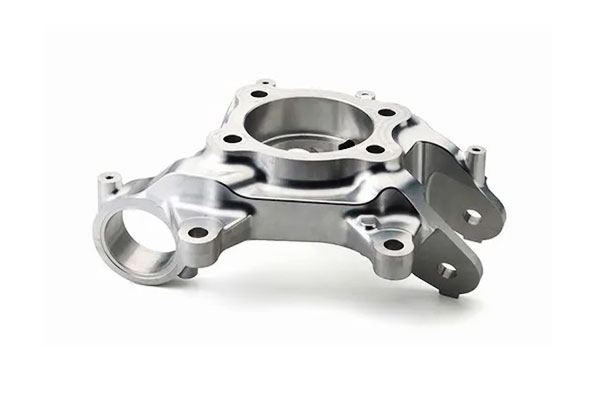
6061 Aluminum Applications:
- Letecký průmysl: Aircraft structures, wing panels, Komponenty přistávacího zařízení
- Automobilový průmysl & Přeprava: Podvozek, díly zavěšení, driveshafts, truck frames
- Průmyslové vybavení: Structural frameworks, potrubní systémy, ventily, a tanky
- Recreational Products: Rámy na kole, climbing gear, camping tools
- Machined Parts: Precision components requiring strength and corrosion resistance
- Marine aplikace: Structural parts in boat building where higher strength is needed
- Konstrukce: Mosty, scaffolding, Struktury nesoucí zátěž
10. What Is the Difference Between 5052 vs. 6061 Hliníkové slitiny?
| Aspekt | 5052 Hliník | 6061 Hliník |
|---|---|---|
| Série slitin | 5xxx (Al-MG) | 6xxx (Al-Mg-si) |
| Primární legovací prvky | Hořčík (2.2%–2,8%) | Hořčík (0.8%–1,2%), Křemík (0.4%–0,8%) |
| Pevnost | Mírná síla (Tahové: ~ 215 MPa) | Vysoká síla (Tahové: ~290 MPa in T6 temper) |
| Svařovatelnost | Vynikající | Dobrý (may require post-weld heat treatment) |
| Odolnost proti korozi | Vynikající (especially in saltwater/marine environments) | Dobrý, but less than 5052 |
| Formovatelnost | Lepší (ideal for bending, válcování, výkres) | Mírný (less formable than 5052) |
| Machinability | Veletrh | Vynikající (especially in T6 condition) |
| Tepelné léčitelné | Žádný | Ano (can be heat treated to T6, T651, atd.) |
| Typické aplikace | Marine, Chemické nádrže, střecha, značení | Letectví, automobilový průmysl, Strukturální části, obrobené komponenty |
| Náklady | Obecně nižší | Generally higher |
11. Vznikající trendy & Budoucí pokyny
New Alloy Variants
- 5052 Modifications: Research into slight zinc or rare-earth additions aims to further boost corrosion resistance in acidic or alkaline environments without sacrificing formability.
- 6061 Hybrids: Development of 6061 kompozity—embedding nanoscale SiC or Al₂O₃ particles—seeks to raise stiffness and wear resistance while maintaining conventional 6061’s ease of processing.
Aditivní výroba
- 6061 in PBF (Fúze prášku): Recent advances achieve near-100 % density and Uts ~ 280 MPA in laser-melted 6061, though cracking remains a challenge.
In-situ heating strategies (200–300 ° C.) during build help mitigate thermal stresses. - 5052 in DED (Řízená depozice energie): 5052’s non-heat-treatable nature simplifies DED processing;
early trials show Dobrá svářetelnost of powder-blown deposits, with mechanical properties ~ 90 % of wrought 5052 when optimized.
Povrchové inženýrské inovace
- Advanced Anodizing:
-
- Pore-free hard anodize na 6061 výnosy > 600 h salt-spray resistance, povolení 6061 use in marine settings.
- Nano-sealing techniques pro 5052 add self-healing properties, extending life in harsh chemical exposure.
- Hybrid Coatings: Polymer/ceramic nanocomposite overlays deposit on 5052 vs. 6061 aluminum to provide both low friction and corrosion barriers for sliding components in automotive and industrial equipment.
12. Závěr
Obě 5052 vs. 6061 aluminum alloys offer distinct advantages and limitations:
- 5052 vyniká v odolnost proti korozi, Formovatelnost, a Marine aplikace, with a maximum UTS of approximately 241 MPA in H34.
Its non-heat-treatable nature limits peak strength but simplifies fabrication. - 6061 outperforms with a vyšší síla envelope (≈ 310 MPa UTS in T6), age-hardening capability, a superior machinability,
učinit to ideální pro strukturální, automobilový průmysl, a kosmonautika uses—albeit at the cost of requiring heat treatment and additional corrosion protection in aggressive environments.
Material selection should balance mechanical demands, Servisní prostředí, Výrobní metody, a náklady na životní cyklus.
When corrosion or extreme formability rules, 5052 vyniká; when strength and stiffness are paramount, 6061 is the alloy of choice.
Ongoing advances in alloy composition, Aditivní výroba, and surface engineering promise to further refine these alloys, ensuring they remain cornerstones of modern engineering design.
Langhe poskytuje spolehlivé, Vysoce kvalitní složky hliníkové slitiny, které splňují přísné mezinárodní standardy.
Kontaktujte nás Dnes diskutovat o vašem dalším projektu.

